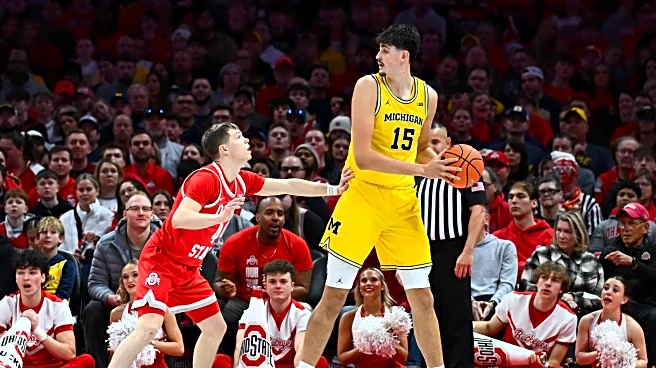What's Happening?
The LSU Tigers are actively engaged in a coaching search following the departure of Brian Kelly. Amidst speculation, Arizona State Sun Devils head coach Kenny Dillingham has publicly stated that he is
not leaving his current position, despite rumors linking him to the LSU job. Dillingham emphasized his commitment to Arizona State, declaring, 'I was never leaving. I never said I was leaving. This is home.' The LSU administration is reportedly identifying top candidates to fill the coaching vacancy, as the search continues to gain momentum in Baton Rouge.
Why It's Important?
The coaching search is crucial for LSU Tigers as they aim to stabilize their football program and maintain competitiveness in the NCAA. The decision of Kenny Dillingham to remain at Arizona State narrows the pool of potential candidates, impacting LSU's strategy in securing a new head coach. This development is significant for LSU stakeholders, including players, fans, and the broader college football community, as it influences the future direction of the team. The choice of a new head coach will affect recruitment, team performance, and the overall reputation of LSU football.
What's Next?
LSU will continue to evaluate other candidates to fill the head coach position. The administration is expected to intensify efforts to identify a suitable leader who aligns with the program's goals and values. Potential reactions from fans and alumni will likely focus on the urgency of finding a coach who can lead the team to success. The ongoing search may also prompt discussions among college football analysts regarding the strategic moves LSU might make to attract top coaching talent.
Beyond the Headlines
The coaching search at LSU highlights broader trends in college football, where coaching stability and program reputation play critical roles in recruitment and team success. The decision by Kenny Dillingham to stay at Arizona State underscores the importance of personal and professional commitments in the coaching industry. This situation may lead to increased scrutiny of how universities manage coaching transitions and the impact on team morale and performance.











